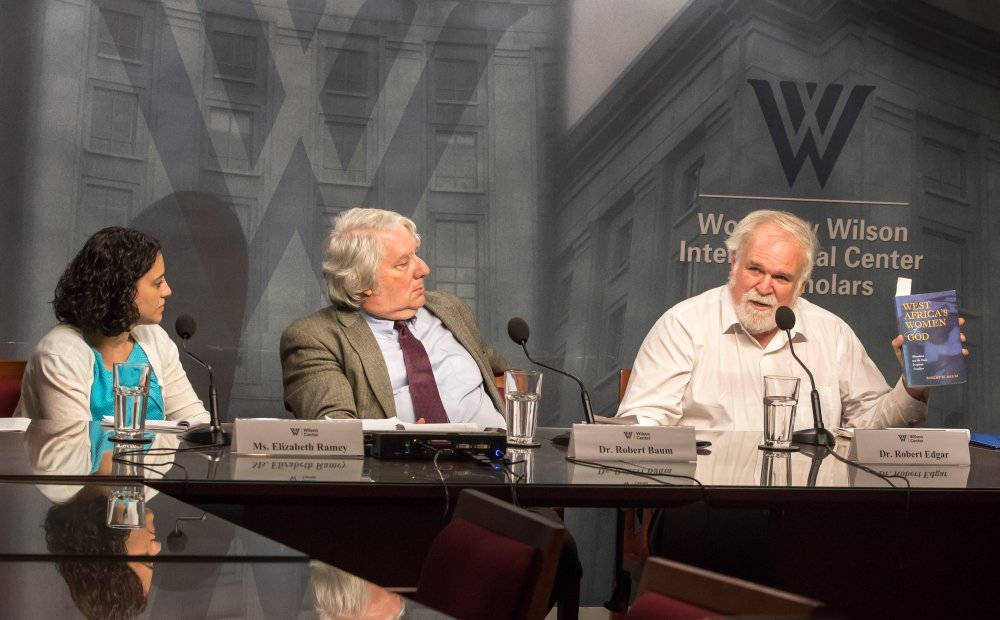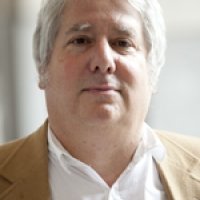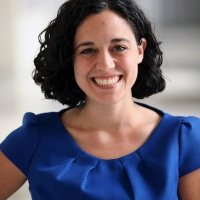Book Launch: West Africa’s Women of God

On Wednesday, July 27th, the Wilson Center Africa Program hosted former Wilson Center Fellow Dr. Robert Baum, Associate Professor of Religion and African & African American Studies at Dartmouth College, for the launch of his most recent book, West Africa’s Women of God: Alinesitoue and the Diola Prophetic Tradition. Dr. Baum was joined by Dr. Robert Edgar, Professor of African Studies at Howard University, who served as a discussant.
Dr. Baum traced the evolution of the Diola religious tradition in Senegal from one exclusively led by male prophets to one in which female prophets became central figures, particularly as there was a sense that male leadership had failed in the face of French colonial conquest, and as avenues for religious leadership within the Muslim and Catholic traditions remained closed to women. He focused his remarks on the particular influence of the female prophet Alinesitoue, whose prophecies mounted a critique of French colonialism and its failing agricultural practices. Although couched in religious terms, Alinesitoue’s message that the Diola should resist peanut farming and continue to plant their traditional variety of rice presaged agricultural best practices around seed diversity and drought management. For her efforts, she was arrested by the French in 1943 at the age of 23 and exiled to Timbuktu, where she died.
The story of Alinesitoue highlights several fallacies in the fields of development, history, and religious studies. The first is the tendency of development experts to discount local knowledge, particularly when framed as religious teaching. Alinesitoue recognized that Diola agricultural practices were better adapted for the local environment, particularly during a period of prolonged drought, but her prophecies were discounted by French agricultural “experts.” Second, historians and religious scholars have tended to portray Africa as a continent without history, and indigenous religions as “not really religions” or traditions that resist change. In fact, Dr. Baum and Dr. Edgar both argued, the evolution of Diola tradition shows the richness and adaptiveness of indigenous cultures, and the importance of bringing agency back into African history. Indeed, in many ways Senegalese society was – and still is – more egalitarian about gender roles than many Western societies, as the importance of female prophets attests.
Speakers

Associate Professor and Chair, Department of Religious Studies, University of Missouri-Columbia

Hosted By

Africa Program
The Africa Program works to address the most critical issues facing Africa and US-Africa relations, build mutually beneficial US-Africa relations, and enhance knowledge and understanding about Africa in the United States. The Program achieves its mission through in-depth research and analyses, public discussion, working groups, and briefings that bring together policymakers, practitioners, and subject matter experts to analyze and offer practical options for tackling key challenges in Africa and in US-Africa relations. Read more
